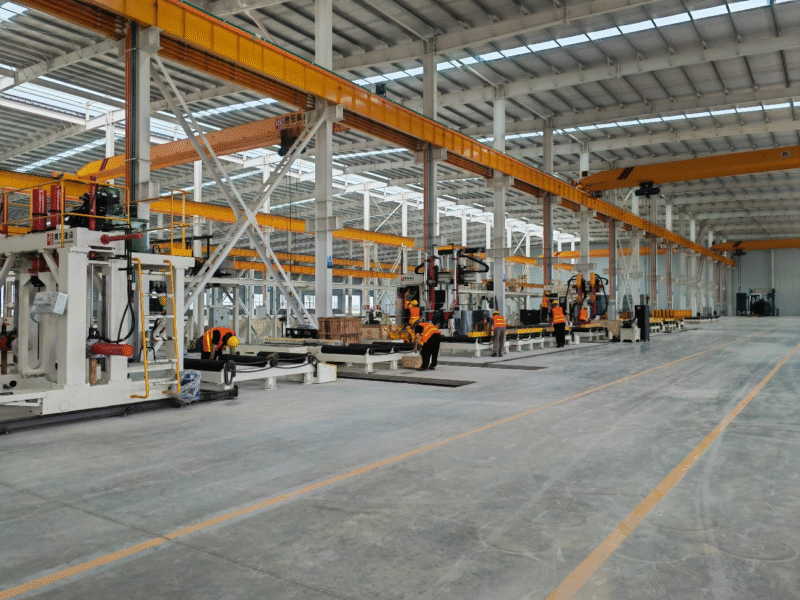
Modular Pig Pens: Hygienic, Efficient, and Scalable Housing for Pig Farms
Efficient pig farming requires housing solutions that ensure animal welfare, optimize space, and streamline farm operations. Traditional pig pens often have long construction times, limited scalability, and insufficient ventilation.
Modular pig pens offer a modern solution. Built with prefabricated steel frames and insulated panels, these pens provide rapid deployment, hygienic design, and flexible layouts that meet the specific needs of commercial pig farming.
This article explores the benefits, applications, and design considerations of modular pig pens for B2B clients.
Why Modular Pig Pens Are Ideal
- Rapid Deployment: Prefabricated components significantly reduce construction timelines.
- Durable Materials: Steel frames resist corrosion, pests, and daily wear.
- Customizable Layouts: Pens can be designed for feeding, breeding, and resting areas.
- Scalable Solutions: Easily expand pens to accommodate herd growth or farm expansion.
These features help farmers maintain animal health, improve productivity, and reduce operational costs.
Key Advantages of Modular Pig Pens
- Fast Construction
Prefabricated modules enable pens to be operational within weeks, minimizing downtime. - Durable and Safe
Steel structures withstand heavy use, environmental stress, and cleaning routines. - Hygienic Design
Smooth walls, proper drainage, and easy-to-clean flooring reduce disease risks. - Flexible Layouts
Pens can integrate feeding stations, breeding zones, and resting areas efficiently. - Energy Efficiency
Insulated roofs and panels reduce heating requirements in colder climates. - Scalability
Modular design allows future expansion without disrupting existing operations.
Applications Across Pig Farms
- Breeding Pens: Controlled spaces for sows and piglets.
- Finishing Pens: Comfortable housing for pigs nearing market weight.
- Nursery Pens: Safe, hygienic environments for young pigs.
- Remote Farm Installations: Rapidly deployed pens in areas with limited infrastructure.
- Emergency Expansions: Temporary or permanent modular additions to existing farms.
Design Considerations for B2B Clients
- Ventilation Systems: Ensure proper airflow to prevent respiratory issues.
- Flooring and Waste Management: Slatted floors or proper drainage for hygiene.
- Climate Control: Maintain consistent temperature for pig health and growth.
- Automation Integration: Space for feeders, water systems, and monitoring equipment.
- Expansion Potential: Modular sections allow adding new pens as herd sizes increase.
Case Studies
- European Commercial Pig Farm:
Modular pens allowed rapid expansion and improved animal welfare standards. - Asian Farm Upgrade:
Prefabricated pens enhanced hygiene, reducing disease incidence and veterinary costs. - Remote Cooperative Farm (Africa):
Modular pig pens enabled scalable housing and better herd management efficiency.
Why B2B Clients Prefer Modular Pig Pens
- Faster construction and early operational use
- Durable and low-maintenance infrastructure
- Hygienic design supporting animal health
- Flexible layouts tailored to farm needs
- Scalable for herd growth
- Compliance with international livestock standards
Conclusion
Modular pig pens provide hygienic, efficient, and scalable housing solutions for modern pig farms. They enhance animal welfare, streamline operations, and reduce costs.
For B2B clients and commercial pig farm operators, modular pig pens are a reliable, cost-effective, and future-ready solution for sustainable livestock management.
